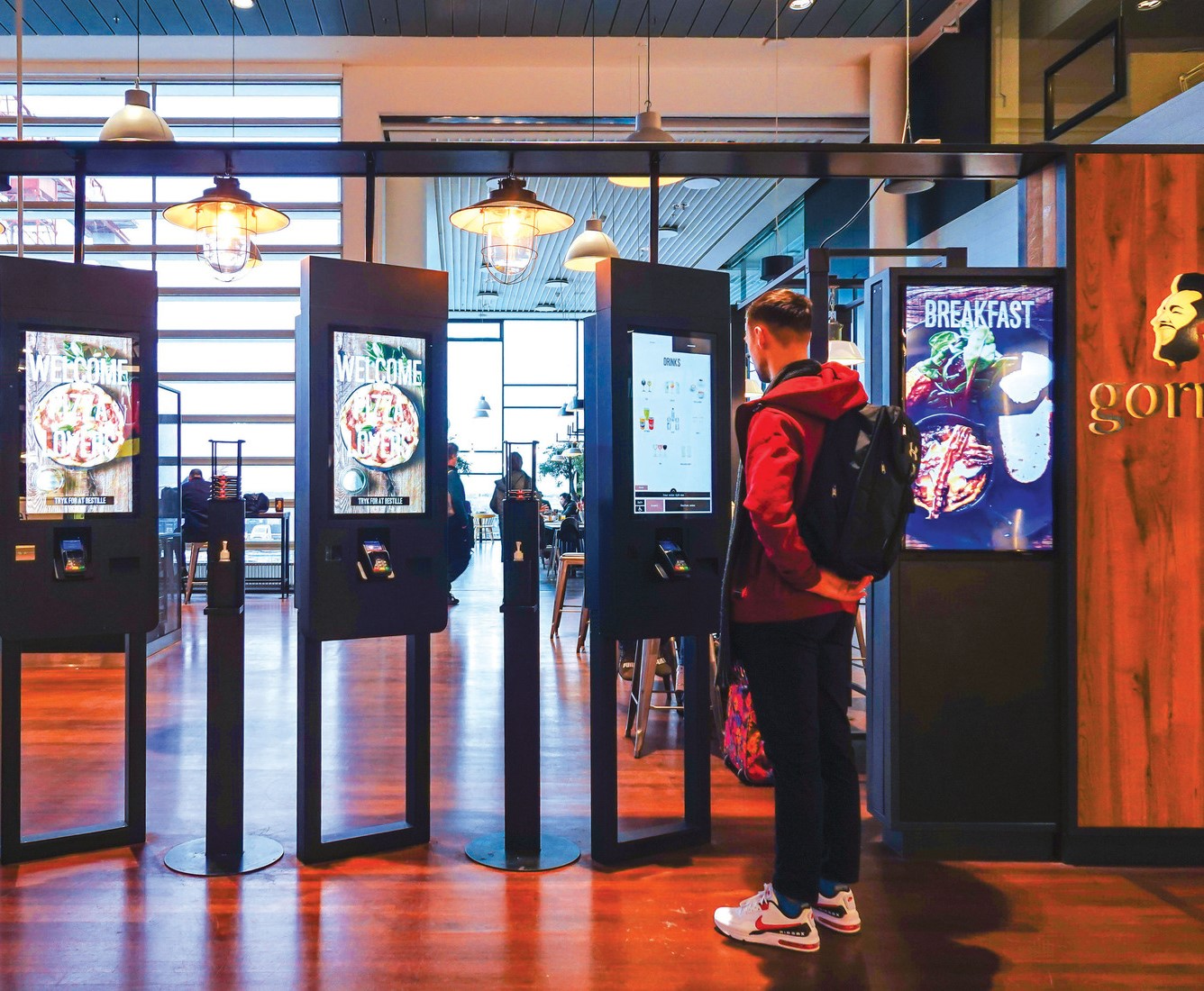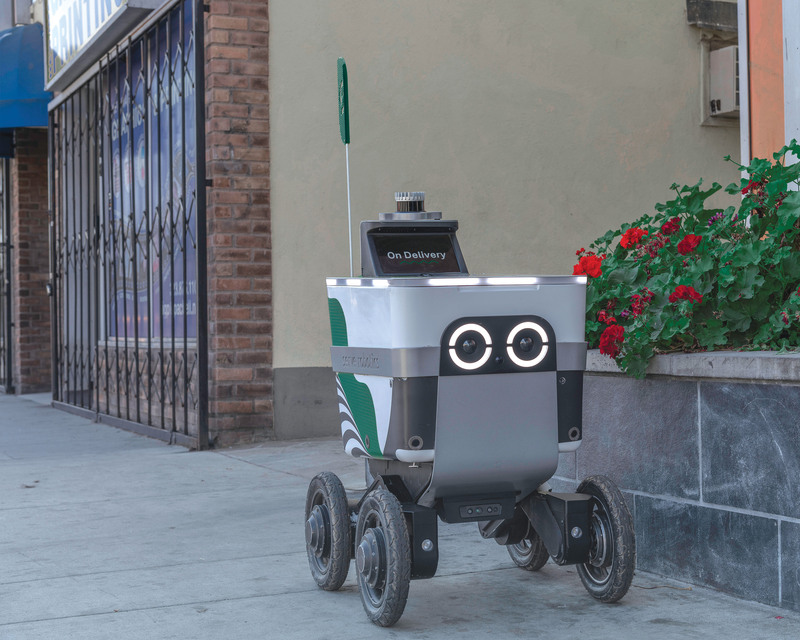
By Howard Lo, Managing Director | Published June 2024
Artificial intelligence (AI) is an astounding technology that is continuously and exponentially evolving. Both companies and individuals are learning AI's real-world applications, and many believe that we are only in the early stages of a transformative shift in how it impacts all aspects of the business and consumer landscape. In the restaurant sector, AI has emerged as a powerful force that is fundamentally altering the industry, as it impacts operations, customer experiences and overall business models from the front to the back of house.
Today, a multitude of AI applications are driving incremental sales and reducing costs within the restaurant industry. AI adoption has increased, with many of the largest national restaurant brands investing heavily in AI through acquisition or in-house development, such as:

Enhancing Operational Efficiency
To date, one of AI’s most significant contributions to the restaurant industry is its ability to streamline operations and enhance efficiency. From automated drive-thru ordering systems to predictive inventory management, AI-driven solutions optimize a restaurant’s workflow, reducing wait times and increasing productivity.
Voice-based AI ordering for drive-thru’s is improving order accuracy and speed of service, promoting consistent upselling and increasing restaurant productivity. In addition, AI-driven technology facilitates predictive analytics and data-driven decision-making, enabling restaurants to optimize inventory management and staffing levels. By using algorithms to analyze historical data, weather, seasonality and input costs, managers are armed with enormous amounts of data to make decisions that minimize waste and maximize productivity. Given the industry’s challenges with constrained labor supply, rising wages and increasing food costs, AI can help meaningfully offset these macroeconomic pressures.
Customer Engagement & Personalization
AI also empowers restaurants to deliver tailored experiences that resonate with the consumer. Through machine learning algorithms, a set of rules or processes used by an AI system to conduct tasks, restaurants can analyze customer data, including past orders, dietary restrictions and feedback, to curate personalized recommendations and promotions. This customized approach fosters deeper consumer connections to the brand, enhances loyalty and can drive repeat visits.
Targeted marketing programs supported by AI technology, primarily delivered through digital channels such as mobile apps and email, have also been shown to drive sales. Digital orders now account for approximately 50% of total sales across the restaurant industry. AI-driven technologies offer enhanced ways to connect with the customer and create a win-win by driving incremental sales while forming a unique and personalized brand relationship.
AI-driven Robotics
The advent of AI-driven robotics has the potential to revolutionize the back-of-house operations by automating repetitive tasks in the kitchen such as food preparation and assembly. The pizza segment is one of the early adopters of AI-driven robotics in the kitchen. Multiple AI-driven robotics companies have received national interest and investor funding to build robots that can make a variety of food, such as pizza, french fries and hamburgers, to name a few. Chipotle Mexican Grill is testing a robotic tortilla chip-making machine named “Chippy” in the hopes of delivering a consistent, perfectly cooked, well-seasoned chip.

Although many of these robotic projects are in developmental stages, a new automated beverage dispenser may be a nearer-term application that could be seen at quick-service restaurants in the near future. Miso Robotics is developing an automated beverage dispenser that will integrate with the POS system, automatically pour drinks based on specifications, and slot beverages according to order time. Today, robotics are already being implemented in many casual or fast casual dining formats as food runners. Autonomous robots navigate around the restaurant and deliver trays to designated tables, freeing up staff for other customer-facing activities.
Menu Innovation and Pricing Optimization
AI can also enhance culinary innovation through new menu offerings by analyzing current culinary trends and evolving consumer preferences. AI-driven recipe generation can combine different ingredient combinations, flavor profiles and cultural influences to inspire chefs to explore unconventional recipes.
It can be a powerful tool for optimizing menu pricing by analyzing a vast amount of data, including historical sales, customer preferences, competitor pricing and market trends, to provide valuable insights into optimal pricing strategies. Recently, some companies have begun testing dynamic restaurant pricing. AI-driven systems can adjust pricing in real-time based on various factors such as demand, time of day, day of week and even weather conditions. It’s too early to understand how customers will react to dynamic pricing at restaurants but, at a minimum, AI can make those pricing decisions easier.
Key Considerations
Artificial intelligence is revolutionizing the restaurant industry, offering unprecedented opportunities for operational efficiency, customer engagement and innovation to optimize processes, enhance experiences, and drive growth in a highly competitive market. However, successful AI implementation requires careful planning, investment and collaboration to realize its full potential and effectively navigate potential challenges. As AI continues to evolve, its integration into the restaurant industry will undoubtedly usher in a new era of efficiency, innovation and data-informed decision-making.
Howard Lo is a seasoned investment banker with over 20 years of experience specializing in the consumer/retail sector. He currently serves as Managing Director at Citizens. Mr. Lo’s extensive experience spans mergers and acquisitions, capital raising, and strategic advisory, providing invaluable guidance to restaurant, food and beverage, and multi-unit retail companies.
Ready to take the next step? Get in touch with our team.
All fields are required unless marked as "Optional".
© Citizens Financial Group, Inc. All rights reserved. Citizens Bank, N.A. Member FDIC
“Citizens” is the marketing name for the business of Citizens Financial Group, Inc. (“CFG”) and its subsidiaries. “Citizens Capital Markets & Advisory” is the marketing name for the investment banking, research, sales, and trading activities of our institutional broker-dealer, Citizens JMP Securities, LLC (“CJMPS”), Member FINRA and SIPC (See FINRA BrokerCheck and SIPC.org). Securities products and services are offered to institutional clients through CJMPS. (CJMPS disclosures and CJMP Form CRS). Banking products and services are offered through Citizens Bank, N.A., Member FDIC. Citizens Valuation Services is a business division of Willamette Management Associates, Inc. (a wholly owned subsidiary of CFG).
Securities and investment products are subject to risk, including principal amount invested and are: NOT FDIC INSURED · NOT BANK GUARANTEED · MAY LOSE VALUE
